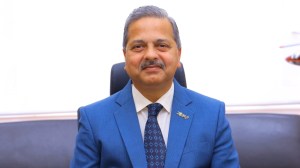Muslim law board to check rise in numbers, up literacy
With the latest Census figures indicating a rising growth rate among Muslims, the All India Muslim Personal Law Board (AIMPLB) said today th...

With the latest Census figures indicating a rising growth rate among Muslims, the All India Muslim Personal Law Board (AIMPLB) said today that it was ready to discuss promotion of family planning and literacy in the community.
‘‘We will take up the issue in the next Board meeting in December and discuss steps to promote education and family planning among the downtrodden in the community,’’ AIMPLB vice chairman Maulana Syed Kalbe Sadiq told reporters here.
However, Sadiq urged all sections not to ‘‘politicise’’ the issue, referring to the controversy over the figures. The illiterate and poor had to be given more educational opportunities by the government, he said.
Sadiq dispelled notions that family planning was not encouraged by Islam, pointing out that Muslim countries such as Iran had achieved almost zero per cent population growth.
‘‘I have written to Shia and Sunni religious leaders that we must sit together and discuss a model of family planning based on the example of these countries, which can be implemented in India,’’ he said.
‘‘We are ready to work with BJP and VHP to find out solutions to the problem, as long as it does not involve murder and assassination. Whatever be the agency, even enemy, we are ready to discuss…,’’ Sadiq said.
While Muslims were ‘‘largely a leaderless community,’’ Sadiq said that if Ulemas, Maulvis and bodies such as the AIMPLB and All India Milli Council appealed in favour of family planning, it would have some effect.
Admitting that certain sections of the Muslim clergy encouraged people to have more children, he said ‘‘at the law board meeting, we will emphasise that the strength of Muslims is not in quantity but in quality. The only way forward is modernisation.’’
The AIMPLB leader noted that according to the revised Census figures, the growth rate of Muslims had declined between 1991 to 2001. ‘‘I hope the trend will continue,’’ he said.
Citing the Muslim growth rate figure as more of a north-south disparity rather than a Hindu-Muslim one, AIMPLB spokesperson Syed Kashim Rasool Ilyas said: ‘‘We are going to take the initiative and facilitate NGOs and other organisations from the south who are already working on the area of education and economic empowerment of Muslims to come and work in the north.’’
The AIMPLB, which plans its next board meeting in Kerala in December, is expected to draw up a blueprint for development programmes in the north. ‘‘It is time we replicate the southern module in the north. In south, especially in Kerala, population growth has stabilised thanks to the economic empowerment of the community,’’ Ilyas said.
In fact, three organisations — Al Amin of Karnataka, Muslim Educational Society of Kerala and Anjuman-i-Islam of Maharashtra — have been identified for the purpose.






- 01
- 02
- 03
- 04
- 05

























